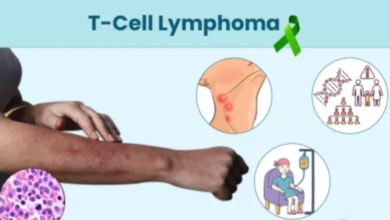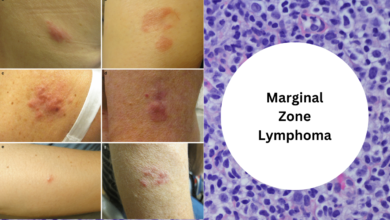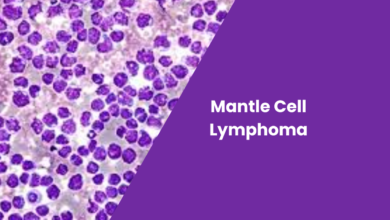
What is Burkitt Lymphoma?
Burkitt lymphoma is a rare and aggressive type of non-Hodgkin lymphoma, a cancer that originates in the lymphatic system. It’s characterized by rapid growth and often involves the jaw, abdomen, or other extranodal sites.
Types of Burkitt Lymphoma
Burkitt lymphoma is primarily classified into two types:
- Endemic Burkitt lymphoma: This type is most common in equatorial Africa and is associated with Epstein-Barr virus (EBV) infection.
- Sporadic Burkitt lymphoma: This type occurs worldwide and is less commonly associated with EBV infection.
Symptoms of Burkitt Lymphoma
Symptoms of Burkitt lymphoma can vary depending on the location of the cancer. Common symptoms include:
• Swollen lymph nodes, often in the jaw, neck, or abdomen
• Abdominal pain or swelling
• Bone pain
• Fever
• Night sweats
• Weight loss
• Fatigue
Causes of Burkitt Lymphoma
Burkitt lymphoma is strongly associated with Epstein-Barr virus (EBV) infection, particularly in endemic areas. Other factors that may contribute to the development of Burkitt lymphoma include genetic mutations and immune system dysfunction.
Who Can Suffer from Burkitt Lymphoma?
Burkitt lymphoma can affect people of all ages, but it’s more common in children and young adults, especially in regions where EBV infection is prevalent.
Diagnostic Tests for Burkitt Lymphoma
To diagnose Burkitt lymphoma, a doctor may use a combination of tests, including:
• Physical exam: To check for swollen lymph nodes and other abnormalities.
• Blood tests: To check for abnormalities in the blood cells.
• Biopsy: A tissue sample is removed from a swollen lymph node or other affected tissue and examined under a microscope.
• Imaging tests: CT scans, MRIs, and PET scans can help determine the extent of the cancer.
Stages of Burkitt Lymphoma
Burkitt lymphoma is typically staged using the Ann Arbor staging system, which considers the extent of the disease and the involvement of lymph nodes.
Treatment of Burkitt Lymphoma
The treatment for Burkitt lymphoma is aggressive and often involves a combination of therapies, including:
• Chemotherapy: To kill cancer cells throughout the body.
• Intensive chemotherapy: A more aggressive form of chemotherapy.
• Stem cell transplantation: To replace damaged bone marrow with healthy stem cells.
Diet and Burkitt Lymphoma Prevention
While a healthy diet can support overall health and strengthen the immune system, it cannot directly prevent Burkitt lymphoma. However, maintaining a balanced diet can help the body fight infection and maintain overall well-being.
Here are some general dietary recommendations:
• A balanced diet: A diet rich in fruits, vegetables, and whole grains can help.
• Limit processed foods and sugary drinks: These can contribute to weight gain and other health problems.
• Maintain a healthy weight: Obesity is linked to an increased risk of certain cancers.
Overall Survival Rate of Burkitt Lymphoma
The overall survival rate for Burkitt lymphoma varies depending on the stage of the disease and the patient’s response to treatment. However, with aggressive treatment, the prognosis for many patients, especially children, is relatively good. Early detection and treatment are crucial for improving survival rates.
Doctor to Consult
A hematologist-oncologist is the best doctor to consult for Burkitt lymphoma.
Diseases Associated with Burkitt Lymphoma
Burkitt lymphoma is strongly associated with Epstein-Barr virus (EBV) infection, particularly in endemic regions.
How to Prevent Burkitt Lymphoma
While there’s no guaranteed way to prevent Burkitt lymphoma, maintaining a healthy lifestyle can reduce the risk of certain factors that may contribute to the disease:
• Limit exposure to radiation and certain chemicals: Exposure to these substances can increase the risk of certain types of cancer.
• Maintain a healthy weight: Obesity is linked to an increased risk of certain cancers.
• Regular check-ups: Regular check-ups can help detect any abnormalities early on.
• Healthy lifestyle: A healthy lifestyle, including a balanced diet and regular exercise, can help boost the immune system.





